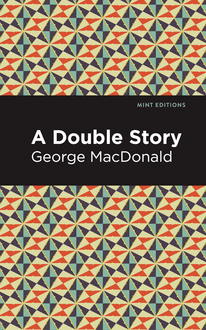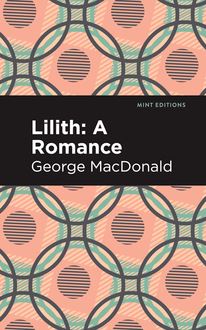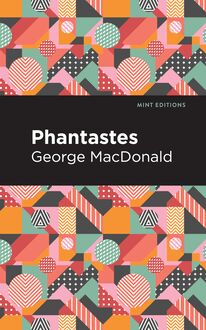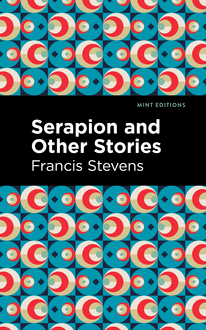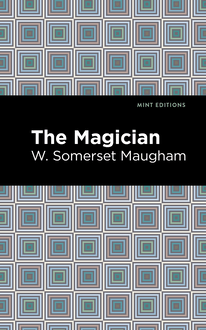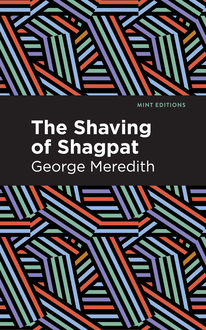-
 Univers
Univers
-
 Ebooks
Ebooks
-
 Livres audio
Livres audio
-
 Presse
Presse
-
 Podcasts
Podcasts
-
 BD
BD
-
 Documents
Documents
-
- Cours
- Révisions
- Ressources pédagogiques
- Sciences de l’éducation
- Manuels scolaires
- Langues
- Travaux de classe
- Annales de BEP
- Etudes supérieures
- Maternelle et primaire
- Fiches de lecture
- Orientation scolaire
- Méthodologie
- Corrigés de devoir
- Annales d’examens et concours
- Annales du bac
- Annales du brevet
- Rapports de stage
La lecture à portée de main
Vous pourrez modifier la taille du texte de cet ouvrage
Découvre YouScribe en t'inscrivant gratuitement
Je m'inscrisDécouvre YouScribe en t'inscrivant gratuitement
Je m'inscrisEn savoir plus
Vous pourrez modifier la taille du texte de cet ouvrage
En savoir plus

Description
“From American history books to Pirates of the Caribbean, the work of Howard Pyle continues to captivate us...”-Big Think
“His totally American sense of past and present changed the world of children’s literature; created a uniquely American philosophy of juvenile literature,”-Jill P. May
Twilight Land (1894), Howard Pyle’s magical collection of original fairy tales is an utterly unique treasury of myths that offer timeless perspectives of loyalty, good-will, and wisdom. The reader will find themselves in the dreamlike world of Twilight Land, where they will meet sixteen of the world’s best known raconteurs as they spin the magic of their stories.
Entering The Inn of the Sign of Mother Goose, in the path through Twilight Land, it is Mother Goose herself who opens the door to an extraordinary group of storytellers; The company includes Ali Baba, Cinderella, St. George, Aladdin, Doctor Faustus, Sindbad the Sailor, among other colorful characters. The sixteen dazzling stories that they tell are collected from around the globe and include tales of nefarious kings, magical curses, the story of St. Nicolas and Ill-Luck, dazzling palaces made of jewels, terrifying demons, beautiful sorceresses, the fool of all fools, and young kings and ancient castles. The stories include “The Talisman of Solomon”, “Ill-Luck and the Fiddler”, “Empty Bottles”, “Good Gifts and a Fool’s Folly”, “The Good of a Few Words”, “Woman’s Wit”, “A Piece of Good Luck”, “The Fruit of Happiness”, “Not a Pin to Choose”, “Much Shall Have More and Little Shall Have Less”, “Wisdom’s Wages and Folly’s Pay”, “The Enchanted Island”, “All Things are as Fate Wills”, “Where to Lay the Blame”, and “The Salt of Life”.
With an eye-catching new cover, and professionally typeset manuscript, this edition of Otto of the Silver Handis both modern and readable.
Sujets
Informations
| Publié par | Mint Editions |
| Date de parution | 01 décembre 2020 |
| Nombre de lectures | 0 |
| EAN13 | 9781513267111 |
| Langue | English |
Informations légales : prix de location à la page 0,0500€. Cette information est donnée uniquement à titre indicatif conformément à la législation en vigueur.
Extrait
Twilight Land
Howard Pyle
Twilight Land was first published in 1894.
This edition published by Mint Editions 2020.
ISBN 9781513266671 | E-ISBN 9781513267111
Published by Mint Editions®
minteditionbooks .com
Publishing Director: Jennifer Newens
Design & Production: Rachel Lopez Metzger
Typesetting: Westchester Publishing Services
C ONTENTS I NTRODUCTION T HE S TOOL OF F ORTUNE T HE T ALISMAN OF S OLOMON I LL -L UCK AND THE F IDDLER E MPTY B OTTLES G OOD G IFTS AND A F OOL ’ S F OLLY T HE G OOD OF A F EW W ORDS W OMAN ’ S W IT A P IECE OF G OOD L UCK T HE F RUIT OF H APPINESS N OT A P IN TO C HOOSE M UCH S HALL H AVE M ORE AND L ITTLE S HALL H AVE L ESS W ISDOM ’ S W AGES AND F OLLY ’ S P AY T HE E NCHANTED I SLAND A LL T HINGS ARE AS F ATE W ILLS W HERE TO L AY THE B LAME T HE S ALT OF L IFE
I NTRODUCTION
I found myself in Twilight Land. How I ever got there I cannot tell, but there I was in Twilight Land.
What is Twilight Land? It is a wonderful, wonderful place where no sun shines to scorch your back as you jog along the way, where no rain falls to make the road muddy and hard to travel, where no wind blows the dust into your eyes or the chill into your marrow. Where all is sweet and quiet and ready to go to bed.
Where is Twilight Land? Ah! that I cannot tell you. You will either have to ask your mother or find it for yourself.
There I was in Twilight Land. The birds were singing their good-night song, and the little frogs were piping “peet, peet.” The sky overhead was full of still brightness, and the moon in the east hung in the purple gray like a great bubble as yellow as gold. All the air was full of the smell of growing things. The high-road was gray, and the trees were dark.
I drifted along the road as a soap-bubble floats before the wind, or as a body floats in a dream. I floated along and I floated along past the trees, past the bushes, past the mill-pond, past the mill where the old miller stood at the door looking at me.
I floated on, and there was the Inn, and it was the Sign of Mother Goose.
The sign hung on a pole, and on it was painted a picture of Mother Goose with her gray gander.
It was to the Inn I wished to come.
I floated on, and I would have floated past the Inn, and perhaps have gotten into the Land of Never-Come-Back-Again, only I caught at the branch of an apple-tree, and so I stopped myself, though the apple-blossoms came falling down like pink and white snowflakes.
The earth and the air and the sky were all still, just as it is at twilight, and I heard them laughing and talking in the tap-room of the Inn of the Sign of Mother Goose—the clinking of glasses, and the rattling and clatter of knives and forks and plates and dishes. That was where I wished to go.
So in I went. Mother Goose herself opened the door, and there I was.
The room was all full of twilight; but there they sat, every one of them. I did not count them, but there were ever so many: Aladdin, and Ali Baba, and Fortunatis, and Jack-the-Giant-Killer, and Doctor Faustus, and Bidpai, and Cinderella, and Patient Grizzle, and the Soldier who cheated the Devil, and St. George, and Hans in Luck, who traded and traded his lump of gold until he had only an empty churn to show for it; and there was Sindbad the Sailor, and the Tailor who killed seven flies at a blow, and the Fisherman who fished up the Genie, and the Lad who fiddled for the Jew in the bramble-bush, and the Blacksmith who made Death sit in his apple-tree, and Boots, who always marries the Princess, whether he wants to or not—a rag-tag lot as ever you saw in your life, gathered from every place, and brought together in Twilight Land.
Each one of them was telling a story, and now it was the turn of the Soldier who cheated the Devil.
“I WILL tell you,” said the Soldier who cheated the Devil, “a story of a friend of mine.”
“Take a fresh pipe of tobacco,” said St. George.
“Thank you, I will,” said the Soldier who cheated the Devil.
He filled his long pipe full of tobacco, and then he tilted it upside down and sucked in the light of the candle.
Puff! puff! puff! and a cloud of smoke went up about his head, so that you could just see his red nose shining through it, and his bright eyes twinkling in the midst of the smoke-wreath, like two stars through a thin cloud on a summer night.
“I’ll tell you,” said the Soldier who cheated the Devil, “the story of a friend of mine. Tis every word of it just as true as that I myself cheated the Devil.”
He took a drink from his mug of beer, and then he began.
“Tis called,” said he—
T HE S TOOL OF F ORTUNE
O nce upon a time there came a soldier marching along the road, kicking up a little cloud of dust at each step—as strapping and merry and bright-eyed a fellow as you would wish to see in a summer day. Tramp! tramp! tramp! he marched, whistling as he jogged along, though he carried a heavy musket over his shoulder and though the sun shone hot and strong and there was never a tree in sight to give him a bit of shelter.
At last he came in sight of the King’s Town and to a great field of stocks and stones, and there sat a little old man as withered and brown as a dead leaf, and clad all in scarlet from head to foot.
“Ho! soldier,” said he, “are you a good shot?”
“Aye,” said the soldier, “that is my trade.”
“Would you like to earn a dollar by shooting off your musket for me?”
“Aye,” said the soldier, “that is my trade also.”
“Very well, then,” said the little man in red, “here is a silver button to drop into your gun instead of a bullet. Wait you here, and about sunset there will come a great black bird flying. In one claw it carries a feather cap and in the other a round stone. Shoot me the silver button at that bird, and if your aim is good it will drop the feather cap and the pebble. Bring them to me to the great town-gate and I will pay you a dollar for your trouble.”
“Very well,” said the soldier, “shooting my gun is a job that fits me like an old coat.” So, down he sat and the old man went his way.
Well, there he sat and sat and sat and sat until the sun touched the rim of the ground, and then, just as the old man said, there came flying a great black bird as silent as night. The soldier did not tarry to look or to think. As the bird flew by up came the gun to his shoulder, squint went his eye along the barrel—Puff! bang—!
I vow and declare that if the shot he fired had cracked the sky he could not have been more frightened. The great black bird gave a yell so terrible that it curdled the very blood in his veins and made his hair stand upon end. Away it flew like a flash—a bird no longer, but a great, black demon, smoking and smelling most horribly of brimstone, and when the soldier gathered his wits, there lay the feather cap and a little, round, black stone upon the ground.
“Well,” said the soldier, “it is little wonder that the old man had no liking to shoot at such game as that.” And thereupon he popped the feather cap into one pocket and the round stone into another, and shouldering his musket marched away until he reached the town-gate, and there was the old man waiting for him.
“Did you shoot the bird?” said he.
“I did,” said the soldier.
“And did you get the cap and the round stone?”
“I did.”
“Then here is your dollar.”
“Wait a bit,” said the soldier, “I shot greater game that time than I bargained for, and so it’s ten dollars and not one you shall pay me before you lay finger upon the feather cap and the little stone.”
“Very well,” said the old man, “here are ten dollars.”
“Ho! ho!” thought the soldier, “is that the way the wind blows?”—“Did I say ten dollars?” said he; “twas a hundred dollars I meant.”
At that the old man frowned until his eyes shone green. “Very well,” said he, “if it is a hundred dollars you want, you will have to come home with me, for I have not so much with me.” Thereupon he entered the town with the soldier at his heels.
Up one street he went and down another, until at last he came to a great, black, ancient ramshackle house; and that was where he lived. In he walked without so much as a rap at the door, and so led the way to a great room with furnaces and books and bottles and jars and dust and cobwebs, and three grinning skulls upon the mantelpiece, each with a candle stuck atop of it, and there he left the soldier while he went to get the hundred dollars.
The soldier sat him down upon a three-legged stool in the corner and began staring about him; and he liked the looks of the place as little as any he had seen in all of his life, for it smelled musty and dusty, it did: the three skulls grinned at him, and he began to think that the little old man was no better than he should be. “I wish,” says he, at last, “that instead of being here I might be well out of my scrape and in a safe place.”
Now the little old man in scarlet was a great magician, and there was little or nothing in that house that had not some magic about it, and of all things the three-legged stool had been conjured the most.
“I wish that instead of being here I might be well out of my scrape, and in a safe place.” That was what the soldier said; and hardly had the words left his lips when—whisk! whir!—away flew the stool through the window, so suddenly that the soldier had only just time enough to gripe it tight by the legs to save himself from falling. Whir! whiz!—away it flew like a bullet. Up and up it went—so high in the air that the earth below looked like a black blanket spread out in the night; and then down it came again, with the soldier still griping tight to the legs, until at last it settled as light as a feather upon a balcony of the king’s palace; and when the soldier caught his wind again he found himself without a hat, and with hardly any wits in his head.
There he sat upon the stool for a long time without daring to move, for he did not know what might happen to him next. There he sat and sat, and by-and-by his ea
-
 Univers
Univers
-
 Ebooks
Ebooks
-
 Livres audio
Livres audio
-
 Presse
Presse
-
 Podcasts
Podcasts
-
 BD
BD
-
 Documents
Documents
-
Jeunesse
-
Littérature
-
Ressources professionnelles
-
Santé et bien-être
-
Savoirs
-
Education
-
Loisirs et hobbies
-
Art, musique et cinéma
-
Actualité et débat de société
-
Jeunesse
-
Littérature
-
Ressources professionnelles
-
Santé et bien-être
-
Savoirs
-
Education
-
Loisirs et hobbies
-
Art, musique et cinéma
-
Actualité et débat de société
-
Actualités
-
Lifestyle
-
Presse jeunesse
-
Presse professionnelle
-
Pratique
-
Presse sportive
-
Presse internationale
-
Culture & Médias
-
Action et Aventures
-
Science-fiction et Fantasy
-
Société
-
Jeunesse
-
Littérature
-
Ressources professionnelles
-
Santé et bien-être
-
Savoirs
-
Education
-
Loisirs et hobbies
-
Art, musique et cinéma
-
Actualité et débat de société
- Cours
- Révisions
- Ressources pédagogiques
- Sciences de l’éducation
- Manuels scolaires
- Langues
- Travaux de classe
- Annales de BEP
- Etudes supérieures
- Maternelle et primaire
- Fiches de lecture
- Orientation scolaire
- Méthodologie
- Corrigés de devoir
- Annales d’examens et concours
- Annales du bac
- Annales du brevet
- Rapports de stage
